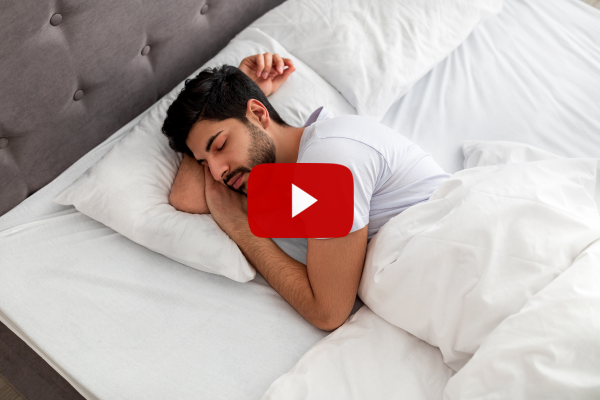In our fast-paced world, sleep often takes a back seat to our busy schedules. Yet, good sleep is essential for our well-being. So, let’s dive deep into the world of sleep and explore how to improve sleep quality, maintain a healthy sleep schedule, and discover the best tips for rejuvenating sleep. By the end of this journey, you’ll be equipped with knowledge that not only helps you sleep better at night but transforms your daily life.

Understanding the Importance of Sleep
Sleep is not just a luxury; it’s a necessity. A good night’s sleep fuels our minds and bodies, allowing us to tackle the challenges of the day with vigor. Research indicates that adults need between 7 to 9 hours of sleep each night for optimal health. However, many find themselves waking up tired and groggy. So, how can we sleep better and get the restorative sleep we all crave?
Firstly, let’s explore what makes sleep so crucial. When we sleep, our bodies enter a state of repair. This time is vital for the restoration of cognitive functions, hormone regulation, and cellular repair. Good sleep boosts our immune system and enhances our mood, proving that it’s not merely about quantity but also about quality.
Conversely, a lack of sleep can lead to a range of sleep disorders and health issues. Poor sleep hygiene can contribute to chronic conditions such as obesity, diabetes, and heart disease. Therefore, it’s essential to prioritize sleep as part of our wellness regime.

Defining Sleep Hygiene
So, what is sleep hygiene? In simple terms, it refers to a set of habits that can help improve the quality of sleep. By making slight adjustments to your environment and routine, you can foster a more suitable atmosphere for relaxation and rest.
First, create a sleep-conducive environment. Make your bedroom a sanctuary for sleep by keeping it dark, quiet, and cool. Consider using blackout curtains, earplugs, or a white noise machine to ensure that external disturbances do not interfere with your sleep.
Second, cultivate a consistent sleep schedule. Going to bed and waking up at the same time each day helps regulate your body’s internal clock. This consistency leads to better sleep quality, making it easier for your body to fall asleep and wake up refreshed.
Lastly, be mindful of what you consume before bed. Avoid heavy meals, caffeine, and alcohol, as these can disrupt your sleep cycle. Instead, opt for light snacks if you’re hungry, and consider herbal teas that promote relaxation.

Crafting the Perfect Sleep Schedule
Creating and sticking to a sleep schedule is one of the best ways to ensure you get better sleep regularly. Your sleep schedule should be tailored to your individual needs, helping you understand your body’s natural rhythms.
Start by assessing how many hours of sleep you need. Keep in mind that this may change over time. Once you determine your ideal sleep duration, calculate what time you should go to bed based on when you need to wake up. Establish a relaxing bedtime routine that signals to your body that it’s time to wind down. This can include activities such as reading, gentle stretching, or meditation.
In addition, resist the urge to sleep in on weekends. While it’s tempting to catch up on lost sleep, this can confuse your internal clock, making it harder to stick to your weekday schedule. Instead, aim for gradual adjustments during the week for a healthier sleep pattern.

Tips for Creating a Restful Sleep Environment
Transitioning to a sleep-friendly environment can significantly impact how well you sleep. Begin by decluttering your bedroom. A tidy space can contribute to a clear mind, making it easier to relax as you settle into bed.
Next, consider the colors and designs of your sleeping space. Soft, calming colors such as blues and greens can create a serene atmosphere. Similarly, using comfortable textiles—like a cozy duvet or soft sheets—will improve your sleeping experience.
Another essential tip for sleep hygiene is to limit exposure to screens before bedtime. The blue light emitted from electronic devices interferes with the production of melatonin, the hormone responsible for sleepiness. Aim to unplug at least an hour before bed, and opt for calming activities to engage your mind instead.

The Role of Diet and Exercise in Sleep
It’s no secret that diet and exercise play significant roles in our overall health. However, they also influence how well we sleep. Eating a balanced diet—rich in fruits, vegetables, lean proteins, and healthy fats—can help regulate your wake-sleep cycle.
Certain foods may even aid your ability to fall asleep quickly. For instance, foods high in magnesium, like spinach and almonds, can promote muscle relaxation. Additionally, tryptophan-rich foods, such as turkey, have calming effects that can help you unwind.
Moreover, physical activity can enhance sleep quality. Regular exercise not only helps reduce anxiety but also improves the overall quality of sleep, allowing you to fall asleep faster and enjoy deeper sleep. Just remember to avoid vigorous workouts close to bedtime, as these may have the opposite effect.

Techniques for Managing Stress and Anxiety
If you find yourself tossing and turning at night, it may be due to stress and anxiety. Addressing these issues is crucial for improving sleep quality. Meditation, mindfulness exercises, and deep-breathing techniques can be practised both during the day and at night to alleviate stress.
Consider creating an evening routine that incorporates calming activities. Whether it’s journaling, reading, or practicing yoga, find what helps you unwind the best. You might even allocate a few minutes to plan for the next day—a simple act that can help clear your mind of lingering thoughts.
Another way to manage stress is to develop a consistent relaxation technique. This could involve progressive muscle relaxation or guided imagery that helps you focus on calming scenarios, nudging you closer to sleep.

Understanding Sleep Disorders
Despite our best efforts, some may still struggle with consistent sleep. Sleep disorders, such as insomnia, sleep apnea, or restless legs syndrome, can hinder the ability to get the restorative sleep we need. If you believe you might be suffering from a sleep disorder, consulting a healthcare provider is vital.
Early identification and intervention can significantly improve outcomes. Potential treatments may involve therapy, lifestyle changes, or medications, depending on the specific condition.
Recognizing when professional help is needed can lead to recovery and a return to enriching sleep. Remember, a peaceful night’s sleep is crucial for overall health and wellness.

Embracing Natural Sleep Aids
When it comes to how to sleep better at night, consider exploring natural sleep aids. While it’s always best to consult a healthcare professional, various herbal supplements, such as valerian root and chamomile, can aid in relaxation and promote restful sleep.
Additionally, you might want to explore aromatherapy. Essential oils like lavender and bergamot can create a calming atmosphere. Diffusing these oils or applying them to your pillow can signal your body that it’s time to wind down.
Nevertheless, remain mindful of your body’s reactions to supplements. The goal is to create a supportive environment for your natural sleep cycles to thrive.

Sleep Strategies for Optimal Health
Incorporating effective sleep strategies into your lifestyle can lead to a profound change in your overall well-being. Everyone’s body is different, so find a combination of techniques that resonate with you.
For starters, prioritize sleep as you would any important appointment. Create a sleep-friendly schedule, ensuring you allocate enough time for rest. Also, listen to your body. If you’re feeling tired, allow yourself to rest instead of pushing through fatigue. Understanding your own rhythms will lead to healthier decisions throughout the day and night.
Also, continue to educate yourself about sleep health. Knowledge is power, and understanding how sleep impacts your physical and mental well-being can motivate changes that enhance your quality of life.

Conclusion – The Journey Towards Better Sleep
In conclusion, improving sleep is a journey that requires patience and experimentation. By prioritizing sleep hygiene, creating an ideal sleep environment, and understanding the various elements that affect sleep, you’ll be on track to achieving restful and rejuvenating nights.
Remember, good sleep isn’t just about the number of hours but also the quality of that sleep. Embrace these tips and make sleep a priority in your life. The more you invest in your sleep now, the more you’ll reap the benefits in your waking hours.
Now that you understand the intricacies of sleep, it’s time to turn the knowledge into practice. Set your intentions, create your sleep sanctuary, and let the beauty of restful sleep rejuvenate your life.
